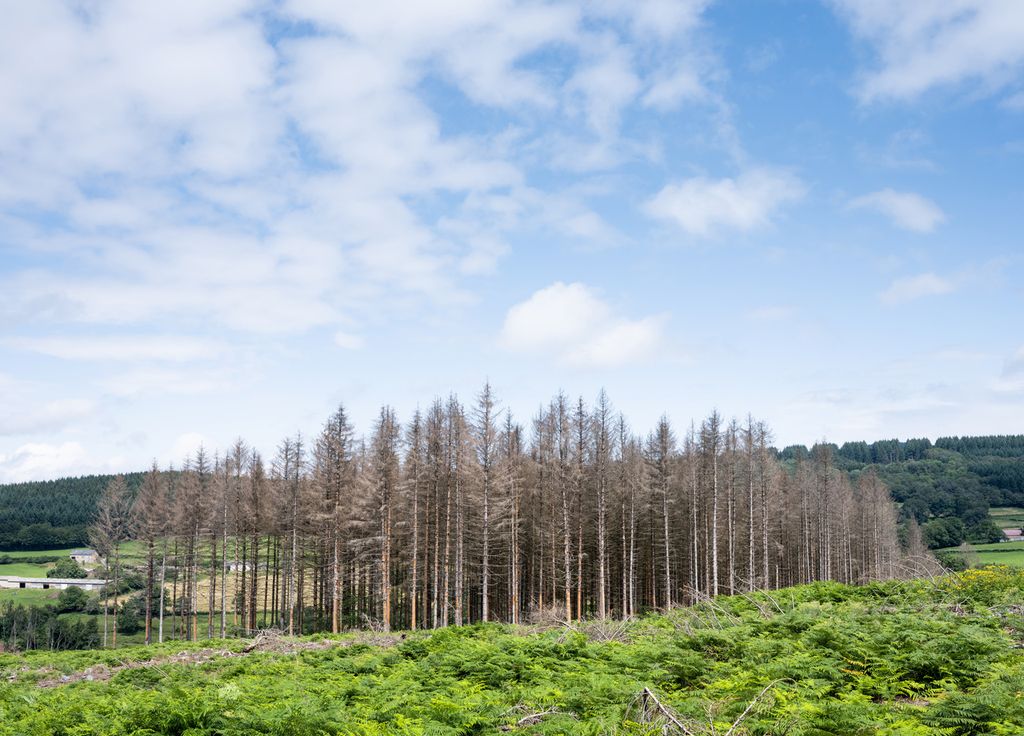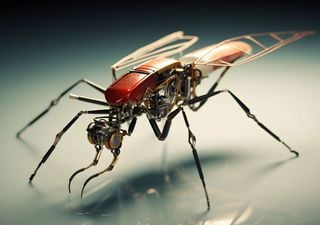This tiny insect can devastate entire forests! What are the solutions to deal with it?
A tiny insect, the bark beetle, ravages the trees in the forests of North-Eastern France. To deal with this scourge, the Minister of Agriculture has just announced a national plan. What is it about? How to fight against this pest?

To deal with the proliferation of the bark beetle, a tiny insect which ravages certain forests in the North-East of France in particular, the Minister of Agriculture Marc Fesneau announced on 15 April a national action plan. What does it contain? How does this insect manage to do so much damage to gigantic trees?
An exponential proliferation in the northern half
The bark beetle is a very small insect, only 2 to 8 millimetres long, part of the beetle family. Dark brown, it has a rather stocky shape and feeds on wood: we speak of a xylophagous insect. In total, 140 different species of bark beetles have been recorded in France, and only around ten represent a real threat to our forests.
#coup_d_oeil: #insecte #coléoptère scolyte sténographe #photo #Inra GJanin. Risques simulés, #forêt préservée : https://t.co/L0iMFCdTvO
— INRAE (@INRAE_France) January 26, 2018
(Suivez-nous: https://t.co/0qqF4iv9MJ) pic.twitter.com/K9n2VC4TSY
Thus, the typograph bark beetle attacks spruce trees, while its curvidentate colleague ravages fir trees, for example in the Grand-Est or Burgundy-Franche-Comté (notably the Morvan). The proliferation of bark beetles is exponential, according to the government, since an additional generation of insects develops each year, hence increased damage.
Naturally occurring in forests, it is because of global warming that their numbers are exploding (as for example in the spruce forests of Northern France), the bark beetles love the heat. Attacked trees are easily identifiable: their needles change colour, going from green to brown, then fall completely and the wood appears dead.
Financial aid and better valued wood
On the 520,000 hectares of spruce and fir forests in the northeast of the country, more than 20% (110,000 hectares) have been colonised by the bark beetle. How does he act? The insect simply deposits its eggs under the bark of trees by digging galleries in their underlayers.
The entire tissue of the tree is thus devoured. Without forgetting the risk of transmission of viral diseases but also of pathogenic fungi....
Dans les Vosges, ce parasite ravage les forêts. Son nom ? Le scolyte, un ennemi microscopique qui aurait grignoté près de 3 millions de tonnes de bois...
— France.tv nature (@FranceTVNature) August 10, 2022
« Sale temps pour la planète », dès maintenant sur https://t.co/C1lD0E7X2j https://t.co/GDgCpXrjkN pic.twitter.com/LZvGObrqmy
The action plan presented by Marc Fesneau includes a now permanent national crisis unit, but also financial aid to encourage the debarking of trees (simply removing the bark) and thus stop the spread of the insect. A “debarking kit” could thus be financed by the State up to 65% of its price (8.000 € maximum).
Finally, the plan also provides for develop as many outlets as possible for wood affected by bark beetles. If it is identified and felled quickly, this “recovered” wood is then still usable for construction. However, if it is attacked too much, the wood very quickly becomes too dry. In total, since 2018, 37 million cubic metres of wood have been ravaged by bark beetles in France.








